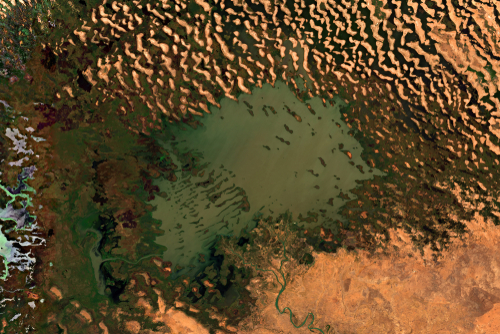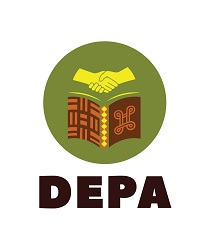Introduction
This project is led by Dr Manu Lekunze at the University of Aberdeen, in partnership with the University of Buea in Cameroon.
The immediate Lake Chad Basin (LCB) region is suffering from a perfect storm of challenges. It is at the forefront of terrorism, state fragility, a high number of refugees, internally displaced persons (IDPs), food insecurity, population explosion, migration, climate change and its environmental implications. For example, Lake Chad has shrunk by 90% since 1960 (NASA and Transaqua Project 2017). The inhabitants of the region depend on the lake for fishing and food cultivation. The lake shrinkage and desertification (resulting from the southward extension of the Sahara Desert) directly impact human security (health, food, employment, diseases, and education). Therefore, this research will work with conflict and climate displaced communities to inform innovative strategies to ameliorate human security in the region.

Overview
The project aims to examine Cameroon’s indigenous theories, objectives, practices, traditions, models and history of political order-making as an essential ingredient of peace and security to contribute to the decolonisation of security provision and peace education. As a result, it seeks to capture ‘lived experiences’ through storytelling and interviews of peace and security end-users and actors in the immediate LCB region. In doing so, the projects will start off with pre-engagment sessions with participants where they will set the terms of the project and the message they wish to emphasise in their communities.

